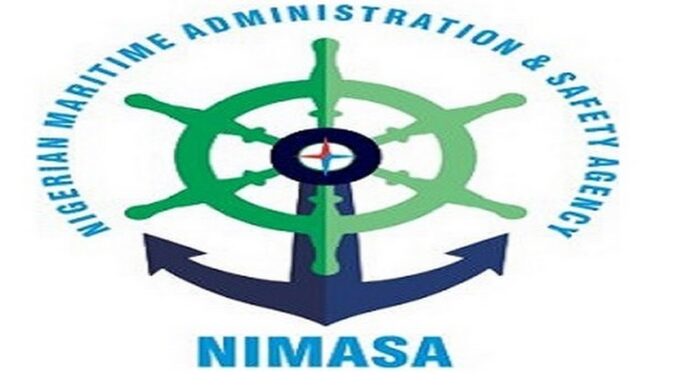By Kehinde Ibrahim, Lagos
The Nigerian Maritime Administration and Safety Agency (NIMASA) has said that it is aspiring to achieve net zero carbon emission for shipping in Nigeria by the year 2050.
Its Director General , Dr Bashir Jamoh who disclosed this in his speech at the 2022 World Maritime Day, which held in Lagos yesterday, said the Agency also intends to play a lead role in fostering cooperation between policymakers, governments, and industry in Africa towards a greener and more sustainable shipping in the continent and its sub-regions.
According to him , NIMASA’s strategy for net zero carbon emission shipping will be centred on the three core themes, first of which is the Adoption of a National Action Plan for 2023 , the second , which is the Provision of incentives and financial mechanisms and Global and regional cooperation .
He said the Agency’s National Technical Committee on reduction of Greenhouse Gas emissions from ships will be strengthened and tasked to develop a clear and achievable National Action Plan for addressing Greenhouse Gas emissions from ships – and maximising the opportunities to the Nigeria maritime sector and wider economy.
Jamoh stated that, the plan will set out strategies and policy measures for effective and sustainable implementation of climate actions for shipping in Nigeria, as well as the details on the implementation and enforcement of international regulations that support net zero carbon emission shipping – ensuring that all new and existing vessels operating in or transiting Nigeria waters adopt energy efficient, low-and-zero carbon emission options.
According to him, the development of the plan will involve extensive research and horizon scanning, as well as consultations with leaders and experts across government, maritime industry and academia.
The NIMASA DG stated that the Second theme , which will see to it that NIMASA recognizes there is no single solution to the challenge of addressing Greenhouse Gas emissions from ships.
According to him, it requires new enterprise and innovative solutions – some of which present significant investment challenges but also opportunities for shipping companies, port operators, and others in the maritime value chain.
He stated that NIMASA will act by mobilising and facilitating fiscal policies and financial mechanisms – including donor initiatives – to support energy efficiency and emission reduction initiatives focused on ships, port infrastructure, and other key areas.
The NIMASA boss stated that the third theme , which has to do with the transition to a net zero carbon emission future in shipping requires both individual and collective actions by governments and industry across the globe, adding that there are examples around the world where this is already happening and delivering results.
He pointed out that collaboration between regional and international partners is a step that can be taken to share good practices and information, create synergies, and leverage expertise and capacity across governments and industry.
Jamoh said this is why NIMASA intends to organise, by February 2023, a conference on possible pathways to net zero emission shipping in Africa and collective actions necessary to implement them, adding that details on the conference will be announced in due course.
He admitted that the journey was a challenging one , but that it has started well , promising that positive action by the global shipping community to help protect the planet from the existential threats of climate change is underway.
The NIMASA DG pledged that NIMASA will continue to play its role in the energy transition of shipping and will continue to push boundaries towards achieving its aspiration of a net zero carbon shipping by 2050.
Jamoh stated that It is a global team effort, and that NIMASA’S message to its its partners in governments and industry is for them to work together and proactively support the transition to a greener and more sustainable maritime sector for Nigeria, Africa and the world at large.
According to him, Nigeria has developed, is adopting and maturing measures to protect the marine environment from impact of shipping activities.
These he said include taking steps to ensure ships comply with the IMO 0.5% global limit for sulphur in fuel oil used on board ships, delineating emission control and “slow steaming” areas in Nigeria’s ports and its approaches, and establishing a National Technical Committee on Green House Gas emission reduction and decarbonization.
He said NIMASA has also taken measures to address the important issue of marine litter in Nigeria waters and the devastating effects this can have on our coastal communities.







